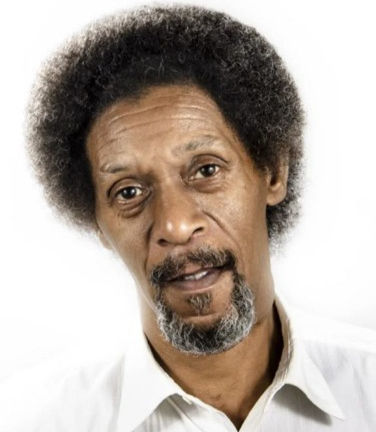The Climate Crisis Is Devastating Black Communities. Public Transit Is a Solution.
- Kim Smith

- Aug 8, 2024
- 3 min read
Updated: Aug 14, 2024

As the world grapples with the ever-intensifying impacts of the climate crisis, a stark and troubling reality has emerged: Black communities are bearing a disproportionate burden of environmental degradation. This inequity is not merely a matter of statistics or abstract concepts; it translates into real, tangible hardships that exacerbate existing social and economic disparities.
Historically, Black communities have been subjected to systemic neglect and discrimination, and climate change is amplifying these injustices. From heatwaves to hurricanes, the effects of climate change are not felt equally across all demographics.
Research shows that Black neighborhoods often experience higher temperatures than their wealthier, predominantly white counterparts due to a phenomenon known as the urban heat island effect. This occurs when cities’ infrastructures—often designed without considering the needs of marginalized populations—trap heat, leading to dangerously high temperatures.
This discrepancy is more than an inconvenience; it has serious health implications. Extreme heat can exacerbate conditions such as asthma, which disproportionately affects Black children, and contribute to higher mortality rates.
Moreover, climate change amplifies the risk of extreme weather events, such as hurricanes and floods. Communities that are already marginalized face the brunt of these disasters, not only due to their location in more vulnerable areas but also because of limited resources to prepare for or recover from such events. The devastation wrought by Hurricane Katrina in 2005 underscored this grim reality, with Black communities in New Orleans suffering disproportionately due to inadequate evacuation plans, delayed relief efforts, and systemic inequalities in housing and infrastructure.
The reality is the climate crisis is not coming, it is here now. And it is deadly and devastating. Particularly for Black communities across this country. And it is a crisis that demands swift and decisive action, and bolstering public transit represents a necessary step forward.
The dirty secret is that the transportation sector is the largest source of U.S. climate pollution — and 80% of transportation emissions come from the cars and trucks on our roads. It’s one of the only major sectors where emissions are still rising.
It is because of this, that investing in public transit is one of the most sensible and impactful things we can do to address the climate crisis on the scale that is needed.
First and foremost, public transit offers a direct solution to reducing greenhouse gas emissions. Unlike personal vehicles, which contribute significantly to carbon dioxide and other pollutants, public transit systems can transport large numbers of people efficiently and with reduced environmental impact per capita. A robust public transit network decreases the overall reliance on fossil fuels, thus curbing emissions that drive climate change.
In addition, investing in public transit promotes sustainable development. By prioritizing accessible, reliable transit options, cities can mitigate urban sprawl and reduce the need for expansive road networks and parking infrastructure.
Despite this, for far too long, policymakers in Washington have prioritized highways and cars over public transit.
Luckily there is new legislation in Congress to fix this. Bills have been introduced in both the House and the Senate to increase transit budgets through operations funding. These bills, the “Stronger Communities through Better Transit Act” in the House and the “Moving Transit Forward Act” in the Senate, would provide more money to states and local municipalities to increase transit options. Congress should pass them without delay.
The climate crisis necessitates bold and proactive measures. Investing in public transit is not merely an option but a moral imperative and a practical solution to combat climate change while fostering equitable and sustainable urban development. By prioritizing public transit, policymakers can chart a course towards a more resilient, inclusive, and environmentally sustainable future for all.
The climate crisis is devastating Black communities and public transit offers a real and viable solution. We just need Washington to act, and soon. Because time is running out.
~ Kim Smith is a city council member in Rochester, New York.
















Comments